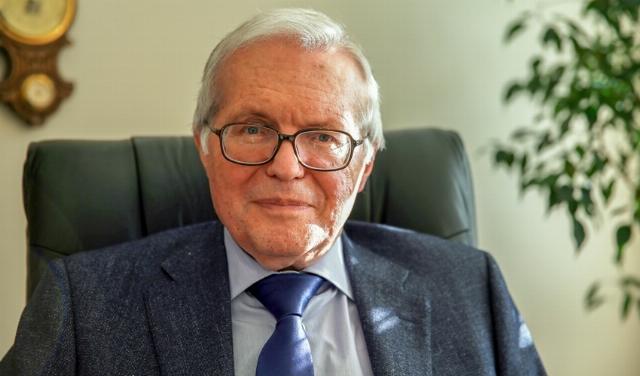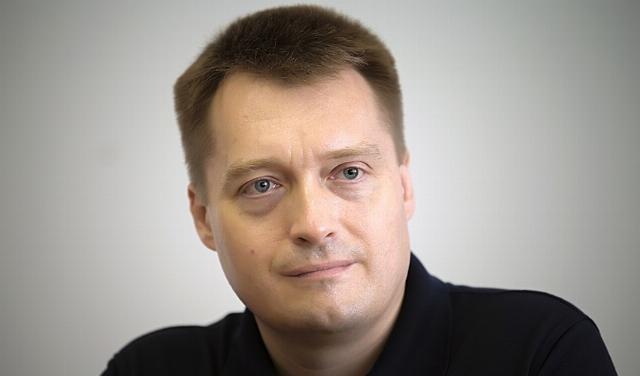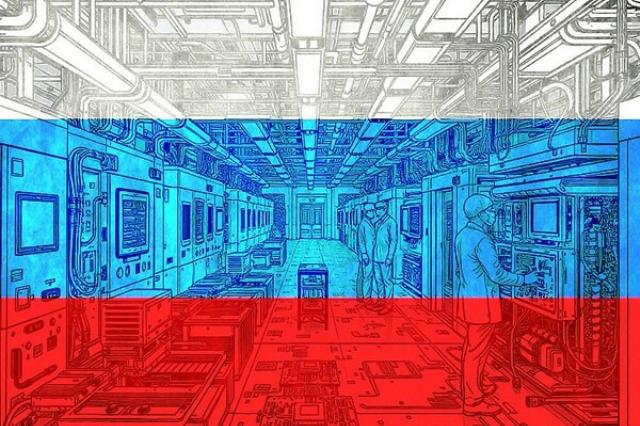Ivan Pokrovsky, Executive Director of the Association of Developers and Manufacturers of Electronics
It is possible to achieve technological leadership only by relying on our own electronics as a platform for the development of most modern technology.
Russian President Vladimir Putin has instructed the government to finalize national projects to ensure technological leadership of the Russian Federation, providing for the inclusion of measures and indicators characterizing technological leadership in the relevant field.
This instruction from the President was given as a follow-up to the decisions of Prime Minister Mikhail Mishustin following the results of the government's strategic session on technological leadership, which was held in December 2024. At the same time, a list of national projects was published that should be focused on achieving technological leadership in the first place.:
— National project "New Materials and Chemistry";
— national project "Means of production and automation";
— National project "New Nuclear and Energy Technologies";
— national project "Industrial support of transport mobility";
— national project "Unmanned aircraft Systems";
— national project "Technological provision of food security";
— National project "New Health saving Technologies";
— National project "Data Economy and Digital Transformation of the State".
All these national projects cover the most important areas of development of various technologies of primary importance for the Russian economy. But, in our opinion, this list lacks microelectronics and electronics in general, without which it is impossible to develop any modern technology, including those included in the mentioned national projects, and therefore technological leadership is impossible.
As Heinz Kundert, president of the European Branch of the international organization SEMI (Semiconductor Equipment and Materials International), which unites manufacturers of electronic products, equipment and materials, said in an interview with Expert magazine back in 2011 (see "Better than in China", No. 33, pp. 42-43), "the country has its own microelectronics — this is a kind of guarantee of national security not only in the field of defense, but also in the field of economics and industry. Modernization is being discussed in Russia. It is impossible without electronics. Semiconductors are present in almost all products, and their use is constantly increasing. Therefore, if you do not have electronics, you will always depend on other countries such as China, the USA, Taiwan. This is a very dangerous situation." The experience of Western sanctions against Russia has confirmed this. And it has always been almost impossible to buy critical technologies and critical equipment without any sanctions, because they are an important competitive advantage for both countries and companies.
 |
| Scientific Director of the Scientific Research Institute for Systems Research (NIISI) RAS Academician Vladimir Betelin. |
| Source: Dmitry Lykov |
A new nuclear project
This is actually why the presence of microelectronics in the list of national projects seems important to us. Although the government has repeatedly adopted microelectronics development programs, these documents have a different status. The development of national projects is provided for by Federal Law No. 172-FZ dated 06/28/2014 "On Strategic Planning in the Russian Federation". The law says:
That is why the list of national projects is not accidentally approved by the government and the president — he personally determines the tasks that these projects should solve. In this case, to achieve technological leadership in the relevant field.
The question is also what such a national project could be. It is unlikely that it can be put on a par with national projects, the list of which has been approved by the government. Rather, in terms of the scale of the tasks that need to be solved, it could be compared with the Soviet atomic and rocket projects of the 1940s and 1950s with the appropriate level of organization and funding.
Electronics is not only an opportunity to develop oneself according to the model of technological leadership with all the ensuing consequences, including economic ones. Electronics is also a platform for other areas of technology, without the development of which technological leadership is impossible. Without its own such platform, the country is limited in other priority areas (digitalization, unmanned vehicles, etc.) by the rules set by the foreign owner of the platform. And you can't jump over these limits. The country turns out to be not an independent actor, but only a participant in the ecosystem managed by a foreign vendor. Yes, within this ecosystem it is possible to demonstrate some wonders of innovation and make a big contribution to its development, but the main beneficiary of your contribution will still be the owner of the ecosystem.
The easiest way to illustrate this is with the example of digitalization. Which digital company is currently the largest by capitalization? Nvidia. Who works for Nvidia? Everyone who raises the topic of artificial intelligence and puts it forward as a national priority is pouring water on Nvidia's mill. And while this company remains practically a global monopoly, it has an unlimited resource for setting any restrictions, rules, and priorities within the framework of the topic it controls. The situation is similar in many other areas: the market for network equipment depends on the American Broadcom, which means the entire Internet. And the server market depends on the Intel/AMD duopoly, which means the data center infrastructure. And Qualcomm and Mediatek are a duopoly in the smartphone market, which extends its influence to the market of Internet of Things devices.
A catch-up strategy does not allow you to overcome these limitations: there are not enough resources. We need to look for other approaches. As the academician said on the pages of StimulVladimir Betelin, it is possible to create competitive systems with the production technologies of the previous generation, which are easier to master. Due to the circumstances, we are forced to look for new architectural solutions, to look for non-standard technological solutions, this creates the prerequisites for leadership in design. But this is not enough, we need to take leadership in the transformation of the cooperative ecosystem. At the same time, we are doomed to defeat in the struggle for exclusive dominance. It is necessary to propose other approaches — joint development and use of technologies, the development of partners instead of exploiting technological dependence, the transition to joint trusted platforms (see the article in the Incentive "From the struggle for dominance to joint development" ).
The destruction of technological monopolies and the transition to trusted platforms will require joining forces and consolidating the resources of all interested countries. Joint projects on the development of trusted software and hardware platforms will become guidelines for national technological development strategies. The flow of investment, scientific and engineering resources into such projects will lead to the transformation of the global ecosystem from the hierarchy of Western corporations into a distributed, cooperative network. Who initiates and leads these processes? Such leadership is needed now.
 |
| Vladislav Klochkov, Deputy General Director of the N. E. Zhukovsky Institute for Strategic Development. |
| Source: Dmitry Lykov |
Live with your mind
As Vladislav Klochkov, Deputy General Director of the N. E. Zhukovsky Institute for Strategic Development, noted in an interview with Stimul, "in order to achieve genuine technological sovereignty, and not only technological, economic, and political sovereignty, cognitive sovereignty is necessary. In Russian, to be able to live with your mind."
Of course, if we adopt as a platform those Russian solutions that are currently inferior to foreign ones, at this particular moment this will set certain technical limitations, for example, for solutions in unmanned vehicles, or in digitalization, or in artificial intelligence, and many developers of applied solutions will feel them. But that's what government policy is required to think not about the current moment, not based on short-term interests, but on long-term ones. And then the right feedback should be included and the development of those platforms that are now objectively lagging behind the advanced foreign ones. This lag can be measured. According to all estimates, it is about 10-15 years old, that is, if measured in generations of microprocessors, then these are two generations. This is an uncritical lag. This can be used to design competitive solutions. They may lose out in price, they may lose out in performance, but they can cover a very wide area.
It is important here that by properly including these feedbacks, application developers and platform developers, we overcome the limitations from which we started, our own platform begins to evolve, the speed of development is gaining momentum, becoming more attractive, attracting more and more supporters and resources into our development. It is very important that she is trusted. Not only in terms of sovereignty for the state, but also attractiveness and confidence for developers participating in the ecosystem, who are already fed up with technological dependence on monopolists.
A huge reserve can also be obtained by eliminating redundancy in management systems for various purposes. It has been accumulated historically and is not justified by real needs. This is the result of the rush to bring new products to market, when companies try to minimize the time to market, bring out raw solutions, then patch holes, substitute some kind of crutches. All this puts an additional burden, if we talk about digital systems, on the same processor. And if we talk about other equipment, it simply imposes additional requirements on the complexity of these solutions — and in getting rid of this redundancy, there is a huge reserve for increasing efficiency. Not only efficiency, but also reliability, because beyond redundancy you don't see the cause of the problems the customer is facing. It turns out that technical solutions are so layered that no one fully understands the logic in which they were made and why they are exactly the same. And here we can apply what Bethelin suggested: to rely on more advanced, concise and progressive architectural solutions. Moreover, they are more effective the more they are specialized in the field of application, which, together with the rejection of redundancy, provides very good opportunities.
And returning to the idea expressed by Vladislav Klochkov that "we must be able to live with our own minds," this does not mean that we should close ourselves off from the best ideas that exist in the world. On the contrary, we should be very receptive to these ideas, but decisions should be made by ourselves, and we should not fall into a rut laid by someone else. Especially if it is shown to us not by someone who creates technologies, but by someone who promotes their use and aims to exploit technological dependence.

